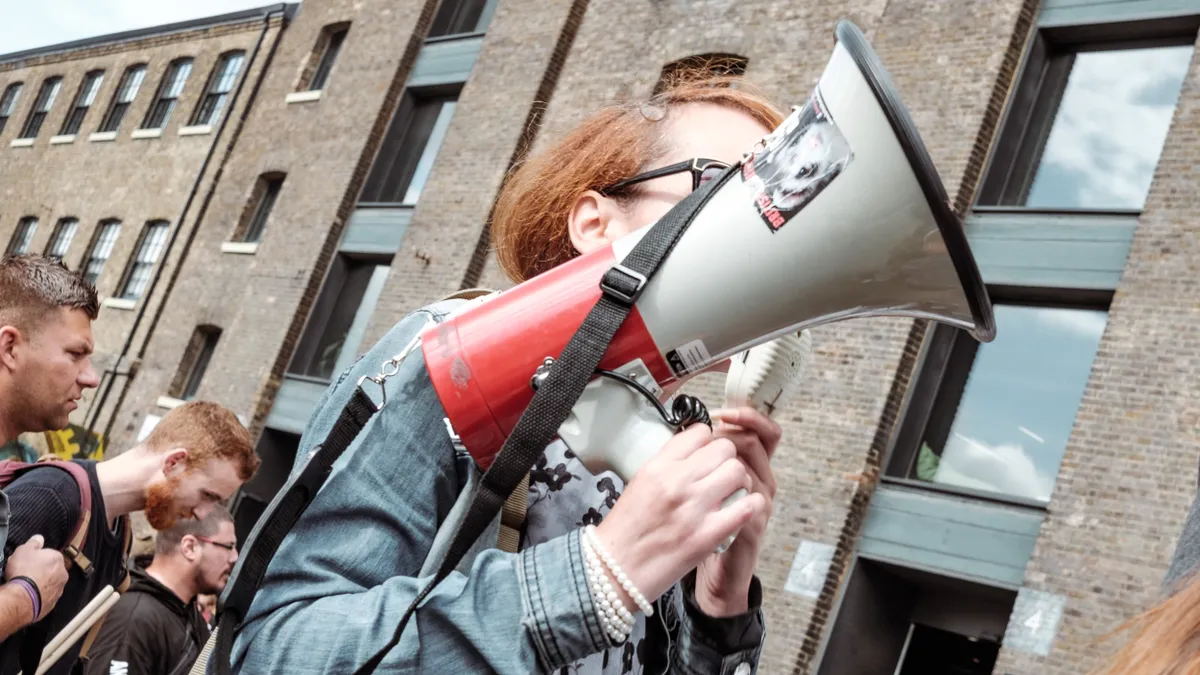College administrators should develop concrete plans for handling protests on campus, particularly as the country heads into a heated presidential contest, civil liberties experts and student affairs professionals opined at Stetson University's National Conference on Law and Higher Education, held in Florida last week.
Campus activism has spiked since the 2016 presidential election. A report from free speech advocacy group PEN America last year detailed episodes at colleges nationwide in which students have demanded administrators punish speech they found offensive — even though it may be protected under the First Amendment or institutional free expression policies.
A caustic partisan environment may be part of the reason student protests have intensified, research suggests. A 2018 survey by the National Association for College Admission Counseling found the "intensity of political rhetoric" led to disillusionment among some college students.
Controversial speakers circulating campuses have also complicated matters, as college executives, particularly those at public institutions, may object to the speakers' views but are bound to allow them to appear.
Although these presidents and chancellors may denounce outsiders' views, that may not satisfy students who find them repugnant — such as those of "alt-right" figure Richard Spencer, who started touring campuses around three years ago, partially in an attempt to rile students. Spencer eventually stopped traveling to colleges.
And while students want free speech preserved, they don't wholeheartedly endorse such policies, according to a 2019 survey from civil liberties watchdog the Foundation for Individual Rights in Education.
"Protests are the new normal," John Kroger, chief learning officer for the U.S. Navy, told the crowd at Stetson's conference.
He listed off recent skirmishes affecting Harvard University: climate change activists interrupted a football game at rival Yale, its graduate student union had a strike, students protested over a professor not getting tenure, and the student newspaper, The Harvard Crimson, faced backlash for its reporting on a protest of U.S. Immigration and Customs Enforcement held on campus. And this was just in the fall semester.
Kroger suggested administrators come up with a list of issues they believe might be the subject of protests. Then, he said, officials should determine what their positions are on each of those topics and if they would be willing to work with students on them.
College leaders can either placate or educate students, he said. In many cases, governing boards pressure presidents to maintain a calm campus environment, he said. And so often presidents are incentivized to de-escalate situations. That often means agreeing to student demands.
Having clear sanctions in place could help deter students from crossing certain lines, Kroger said. This has proven difficult, however, as administrators are sometimes loath to penalize free speech violations. Institutions do not often share publicly the outcomes of their disciplinary process, though after Middlebury College students shouted down inflammatory author Charles Murray in 2017, officials there said 74 students were punished.
Students "are looking for guardrails," said Jim Hundrieser, vice president for consulting services at the National Association of College and University Business Officers, during the event. But college boards especially are ill-equipped to deal with these issues and may require training.
After white supremacists marched through the University of Virginia's campus in 2017, administrators at Virginia Tech walked through how they would respond if something similar happened on their campus, said Kristina Hartman, the university's associate legal counsel.
The group, which comprised legal counsel as well as senior leaders, including those in emergency management, identified what they would have done at certain points during the episode, Hartman said.
She noted that officials from all departments should be involved in these conversations and that institutions need to pin down the circumstances in which they will call in other representatives, such as university police or student affairs professionals.
"Who is dealing with these issues, even on a day-to-day basis?" she asked.























